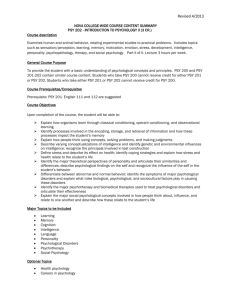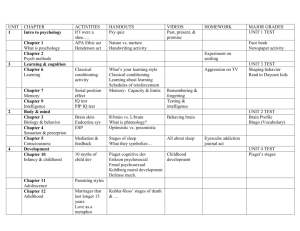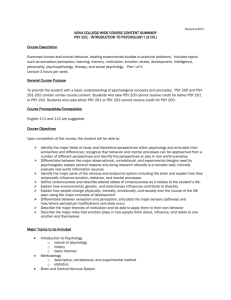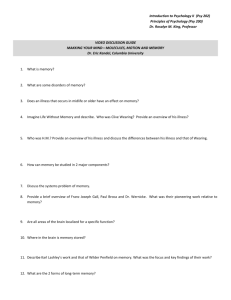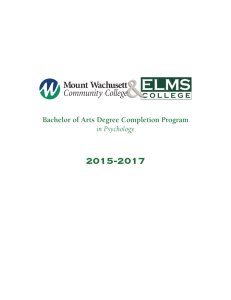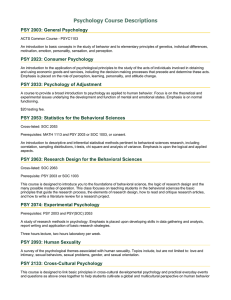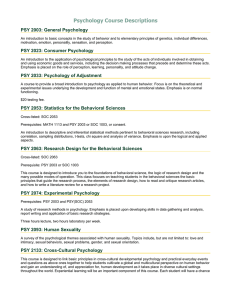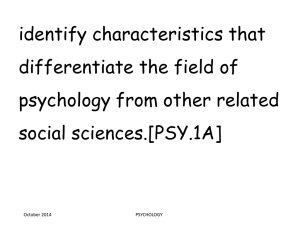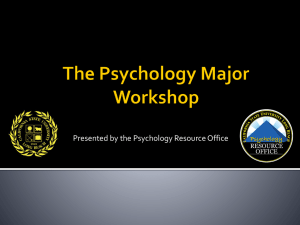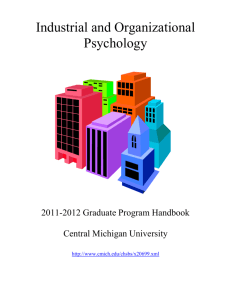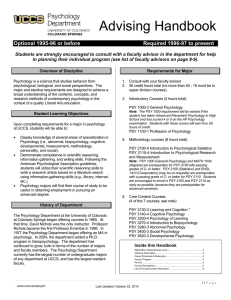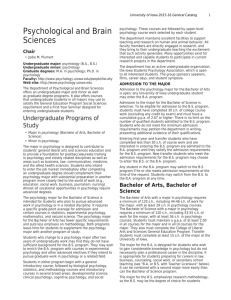NOVA COLLEGE-WIDE COURSE CONTENT SUMMARY PSY 200
advertisement
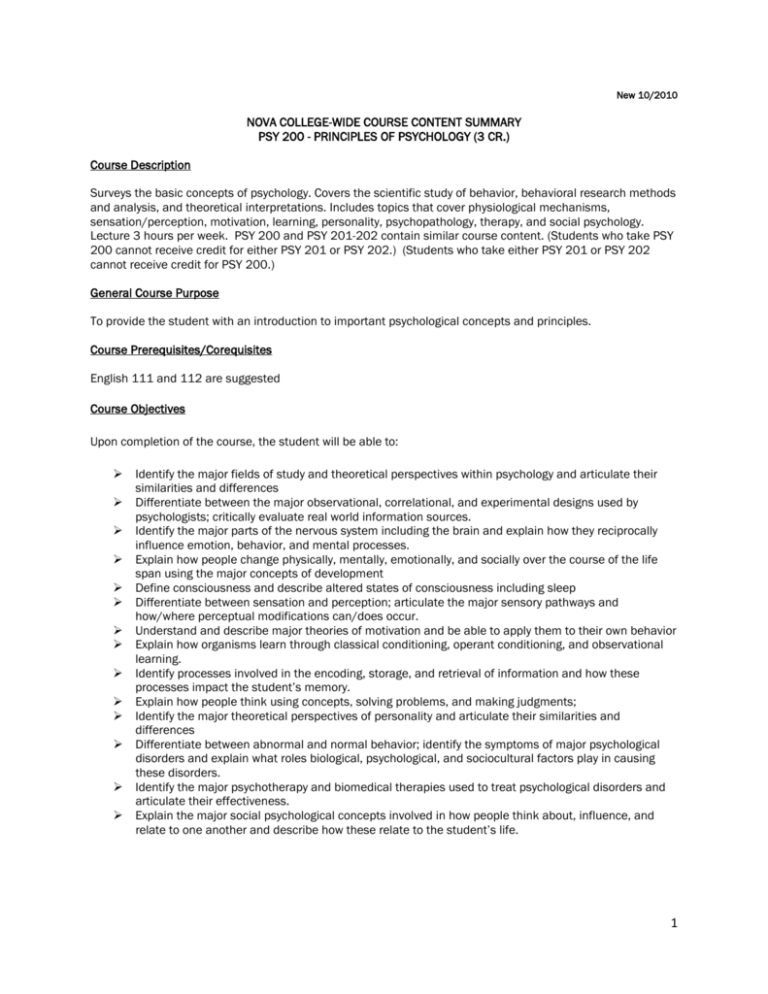
New 10/2010 NOVA COLLEGE-WIDE COURSE CONTENT SUMMARY PSY 200 - PRINCIPLES OF PSYCHOLOGY (3 CR.) Course Description Surveys the basic concepts of psychology. Covers the scientific study of behavior, behavioral research methods and analysis, and theoretical interpretations. Includes topics that cover physiological mechanisms, sensation/perception, motivation, learning, personality, psychopathology, therapy, and social psychology. Lecture 3 hours per week. PSY 200 and PSY 201-202 contain similar course content. (Students who take PSY 200 cannot receive credit for either PSY 201 or PSY 202.) (Students who take either PSY 201 or PSY 202 cannot receive credit for PSY 200.) General Course Purpose To provide the student with an introduction to important psychological concepts and principles. Course Prerequisites/Corequisites English 111 and 112 are suggested Course Objectives Upon completion of the course, the student will be able to: Identify the major fields of study and theoretical perspectives within psychology and articulate their similarities and differences Differentiate between the major observational, correlational, and experimental designs used by psychologists; critically evaluate real world information sources. Identify the major parts of the nervous system including the brain and explain how they reciprocally influence emotion, behavior, and mental processes. Explain how people change physically, mentally, emotionally, and socially over the course of the life span using the major concepts of development Define consciousness and describe altered states of consciousness including sleep Differentiate between sensation and perception; articulate the major sensory pathways and how/where perceptual modifications can/does occur. Understand and describe major theories of motivation and be able to apply them to their own behavior Explain how organisms learn through classical conditioning, operant conditioning, and observational learning. Identify processes involved in the encoding, storage, and retrieval of information and how these processes impact the student’s memory. Explain how people think using concepts, solving problems, and making judgments; Identify the major theoretical perspectives of personality and articulate their similarities and differences Differentiate between abnormal and normal behavior; identify the symptoms of major psychological disorders and explain what roles biological, psychological, and sociocultural factors play in causing these disorders. Identify the major psychotherapy and biomedical therapies used to treat psychological disorders and articulate their effectiveness. Explain the major social psychological concepts involved in how people think about, influence, and relate to one another and describe how these relate to the student’s life. 1 Major Topics to be Included A. Introduction to Psychology 1. nature of psychology 2. history 3. basic theories B. Methodology 1. psychological experiment 2. statistics C. Neuroscience D. Consciousness – states of awareness E. Sensation and Perception F. Motivation G. Lifespan Development H. Learning I. Memory J. Cognition K Personality L. Psychological Disorders M. Psychotherapy N. Social Psychology Optional Topics Human Sexuality Parapsychology Industrial-Organizational psychology Intelligence Stress and Health Language development 2
